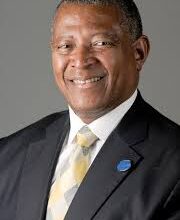Visually impaired voters count, too.
Published 9:10 pm Wednesday, July 23, 2008
Parmie Woods was so discouraged at the thought of going to the poll, she thought about voting absentee.
At least she didn’t decide not to vote at all.
Woods, a legally blind woman from Selma, had become increasingly frustrated with what she considered lack of cooperation from poll workers.
Her story, unfortunately, is fairly common.
“The only shame is needing help and not asking for it,” said William Bowman, president of Visually Impaired People Organization Inc. “Don’t let anyone else’s attitude toward you affect what you do.”
VIP held its Voting Rights Forum for people with disabilities Wednesday morning at the YMCA of Selma-Dallas County. The forum put special emphasis on using the AutoMARK machine, which is designed primarily to help people with physical impairments vote independently.
People who had never used the machine were encouraged to become familiar with it in the hopes of alleviating anxieties in future elections.
“I hadn’t had any trouble with the actual machine, just the people who have the authority to use the machines,” Woods said. “It’s very easy. It tells you what buttons to press and gives you the option to change your mind.”
Graham Sisson had an appointment to West Point in 1982, but lost it three weeks after high school. A drunk driver hit his car and left him paralyzed. Since then, he finished law school, became a chief poll inspector in Birmingham and earned a position in Gov. Bob Riley’s office.
Sisson, Executive Director of the Governor’s Office on Disabilities, said this issue is less about convenience than about rights.
“It’s a civic duty. We have a responsibility as Americans to vote, so we want to make voting accessible to everybody,” said Sisson, who pointed out several laws created to protect the right of disabled people to vote. “I don’t like to use the word handicapped. I think the better word is person with a disability because it emphasizes ‘person’ first.”





